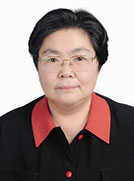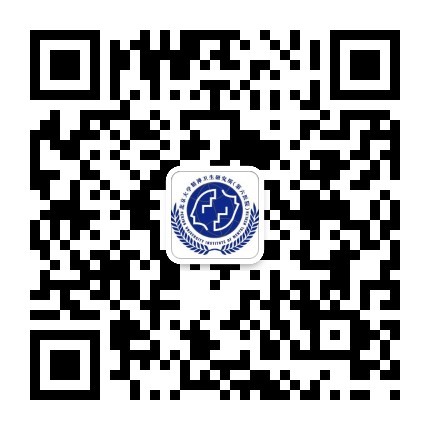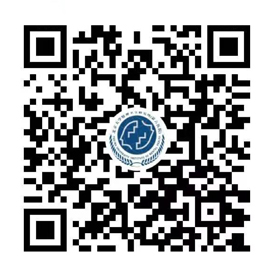学术带头人
钱秋谨教授简介

钱秋谨,主任医师,教授,博士生导师。北京大学第六医院儿童精神病学研究室主任。
教育经历:1997年毕业于北京医科大学(现北京大学医学部)获医学学士学位,2002年毕业于北京大学获医学博士学位。
工作经历:
2012.08至今 北京大学第六医院 主任医师,教授,儿童研究室主任,博士生导师
2009.09-2012.08 北京大学第六医院 儿童病房副主任
2008.08-2012.07 北京大学第六医院 副教授
2007.11至今 北京大学第六医院 硕士生导师
2005.08-2012.07 北京大学第六医院 副主任医师
2002.08-2005.07 北京大学第六医院 主治医师
临床专长:注意缺陷/多动障碍(儿童及成人ADHD)、儿童学习困难、发育障碍、儿童青少年情绪及行为障碍、心理及精神障碍的诊断和治疗。
教学经历:培养学术型博士生/硕士生、专业型博士生(含8年制)/硕士生38名(含毕业及在读)。多名学生获得如下奖项:“国家奖学金”和“北京市优秀毕业生”;ADHD国际大会的青年科学家奖(Young Scientists´ Award)、旅行家奖(Travel Grant)、最佳壁报奖(Best Poster Award)和青年科学家奖提名;全国心理卫生学术会议“大会优秀论文”、中华医学会精神病学分会(CSP会议)“大会优秀论文”、中国神经科学学会精神病学基础与临床分会(CSNP会议)“大会优秀壁报奖”等。
研究方向与兴趣:
1)从发育角度,多学科联合探讨不同年龄阶段(学龄前到成人期)的心理健康及促进措施;
2)儿童精神病学与精神卫生学的临床和基础研究,包括治疗策略、预后转归、病因及发病机制、客观诊断及评估方法等。
科研经历:作为项目负责人主持/承担国家级及省部级课题10余项,包括国家自然科学基金、卫生行业科研专项、教育部新世纪优秀人才计划、首都临床特色应用研究专项、首都卫生发展科研专项等。作为研究骨干参与国家自然科学基金国际(地区)合作与交流项目、科技部973项目、卫生部等各项课题10余项。共发表论著110余篇,其中被SCI收录50余篇。担任“十二五”国家重点图书《注意缺陷多动障碍》副主编;参编研究生教材。
获得奖励:入选教育部“新世纪优秀人才支持计划”、 中华医学科技奖贰等奖“注意缺陷多动障碍的系统综合研究”(第二完成人)、北京大学优秀博士论文(导师王玉凤教授)、北京大学医学部青年学者奖、北京大学第六医院优秀导师奖等。
学术兼职:中华精神科杂志编辑。兼任国家自然科学基金委、北京市自然科学基金、北京市科委等项目评审专家。
代表性论著(通信作者/第一作者,近5年):
1) Applying the Mindful Parenting Program Among Chinese Parents of Children with ADHD: A Randomized Control Trial. Mindfulness (in press)
2) Disrupted signal variability of spontaneous neural activity in children with attention deficit/hyperactivity disorder. Biomedical Optics Express. 2021 May 1,12(5):3037-3049.
3) A potential association of RNF219-AS1 with ADHD: Evidence from categorical analysis of clinical phenotypes and from quantitative exploration of executive function and white matter microstructure endophenotypes. CNS Neurosci Ther. 2021 May;27(5):603-616. doi:10.1111/cns.13629.
4) Efficacy of cognitive behavioural therapy in medicated adults with attention-deficit/hyperactivity disorder in multiple dimensions: a randomized controlled trial. Eur Arch Psychiatry Clin Neurosci. 2021 Feb 22. doi: 10.1007/s00406-021-01236-0.
5) Potential Role of ADRA2A Genetic Variants in the Etiology of ADHD Comorbid With Tic Disorders. J Atten Disord. 2021 Jan;25(1):33-43. doi: 10.1177/1087054718757646.
6) The Characteristics and Age Effects of Emotional Lability in ADHD Children With and Without Oppositional Defiant Disorder. J Atten Disord. 2020 Dec;24(14):2042-2053. doi: 10.1177/1087054717745594.
7) Disrupted functional brain connectivity networks in children with attention-deficit/hyperactivity disorder: evidence from resting-state functional near-infrared spectroscopy. Neurophotonics. 2020 Jan;7(1):015012. doi: 10.1117/1.NPh.7.1.015012.
8) Monoaminergic Genetic Variants, Prefrontal Cortex-Amygdala Circuit, and Emotional Symptoms in Children With ADHD: Exploration Based on the Gene-Brain-Behavior Relationship. J Atten Disord. 2020 Jan 8:1087054719897838. doi: 10.1177/1087054719897838.
9) Alterations of cerebral perfusion and functional brain connectivity in medication-naïve male adults with attention-deficit/hyperactivity disorder. CNS Neurosci Ther. 2020 Feb;26(2):197-206. doi: 10.1111/cns.13185.
10) The Implicated Roles of Cell Adhesion Molecule 1 (CADM1) Gene and Altered Prefrontal Neuronal Activity in Attention-Deficit/Hyperactivity Disorder: A "Gene-Brain-Behavior Relationship"? Front Genet. 2019 Sep 26;10:882. doi: 10.3389/fgene.2019.00882.
11) A comparison of efficacy between cognitive behavioral therapy (CBT) and CBT combined with medication in adults with attention-deficit/hyperactivity disorder (ADHD). Psychiatry Res. 2019 Jun 29;279:23-33. doi: 10.1016/j.psychres.2019.06.040.
12) Cognitive-Behavioral Therapy for Adult ADHD: A Randomized Clinical Trial in China. J Atten Disord. 2019 Jul;23(9):1035-1046. doi: 10.1177/1087054717725874.
13) Is Emotional Lability Distinct From "Angry/Irritable Mood," "Negative Affect," or Other Subdimensions of Oppositional Defiant Disorder in Children With ADHD? J Atten Disord. 2019 Jun;23(8):859-868. doi: 10.1177/1087054715624228.
14) Interaction Between Season of Birth and COMT Val158Met (rs4680) in ADHD in a Large Sample of Chinese Han Participants. J Atten Disord. 2018 Jul;22(9):886-895. doi: 10.1177/1087054715608441.
15) Deficiency of Sustained Attention in ADHD and Its Potential Genetic Contributor MAOA. J Atten Disord. 2018 Jul;22(9):878-885. doi: 10.1177/1087054715574832.
16) The SNP-set based association study identifies ITGA1 as a susceptibility gene of attention-deficit/hyperactivity disorder in Han Chinese. Transl Psychiatry. 2017 Aug 15;7(8):e1201. doi: 10.1038/tp.2017.156.
17) Association of Y-linked variants with impulsivity and aggression in boys with attention-deficit/hyperactivity disorder of Chinese Han descent. Psychiatry Res. 2017 Feb 24;252:185-187. doi: 10.1016/j.psychres.2017.02.055.
18) Emotional dysregulation of ADHD in childhood predicts poor early-adulthood outcomes: A prospective follow up study. Res Dev Disabil. 2016 Oct 12;59:428-436. doi: 10.1016/j.ridd.2016.09.022.
19) The divergent impact of COMT Val158Met on executive function in children with and without attention-deficit/hyperactivity disorder. Genes Brain Behav. 2016 Feb;15(2):271-279.
20) 关于儿童和青少年期精神障碍研究的几点思考(述评).中华精神科杂志,2019,52(2): 107-109.
21) 注意缺陷多动障碍儿童共患病的学习能力特征及其与执行功能的相关性研究.中华精神科杂志,2019,52(1): 62-69.
22) 男性成人注意缺陷多动障碍患者静息态脑功能连接特点研究.中华精神科杂志,2019,52(1): 70-75.
23) 虚拟现实技术辅助评估儿童ADHD的应用(综述).中国心理卫生杂志,2019,33(6):453-458.
24) 单纯注意缺陷多动障碍儿童学习能力的特征.中华精神科杂志,2018,51(2):118-124.
25) 儿童注意缺陷多动障碍的家庭干预研究(综述). 中国心理卫生杂志,2018,32(1):24-29.
26) 注意缺陷多动障碍儿童多维计算机化执行功能训练的探索性随机对照研究. 中华精神科杂志.2017,50(6):445-452
27) 注意缺陷多动障碍成人患者执行功能研究.中国神经精神疾病杂志,2017,43(11):676-682.
28) 高智商成人注意缺陷多动障碍患者临床及认知功能特点分析. 中华精神科杂志.2017,50(6):425-434
29) 成人注意缺陷多动障碍认知行为治疗疗效相关因素. 中国心理卫生杂志,2017,31(12):941-947.
30) 注意缺陷多动障碍儿童磁共振成像的低频振幅特点及性别差异. 中国心理卫生杂志,2017,31(11):872-878.
31) 注意缺陷多动障碍共患抽动障碍儿童的执行功能. 中国心理卫生杂志,2017,31(11):865-871.
32) 共患抑郁障碍的注意缺陷多动障碍儿童的执行功能特点.中国心理卫生杂志,2016,30(11):829-834.
33) 团体认知行为治疗对注意缺陷多动障碍成人患者执行功能的影响.中华精神科杂志.2016,49(3):142-147.
34) 昼夜节律钟基因多态性与儿童注意缺陷多动障碍及睡眠问题的相关分析.中华精神科杂志. 2016,49(3):136-141.
35) 注意缺陷多动障碍及共患学习困难儿童大脑灰质、白质和全脑体积磁共振成像研究. 中国心理卫生杂志,2016,30(3):179-184.

 English
English
 院内办公OA登录
院内办公OA登录

 北京大学第六医院
北京大学第六医院 海淀院区:北京市海淀区花园北路51号
海淀院区:北京市海淀区花园北路51号











